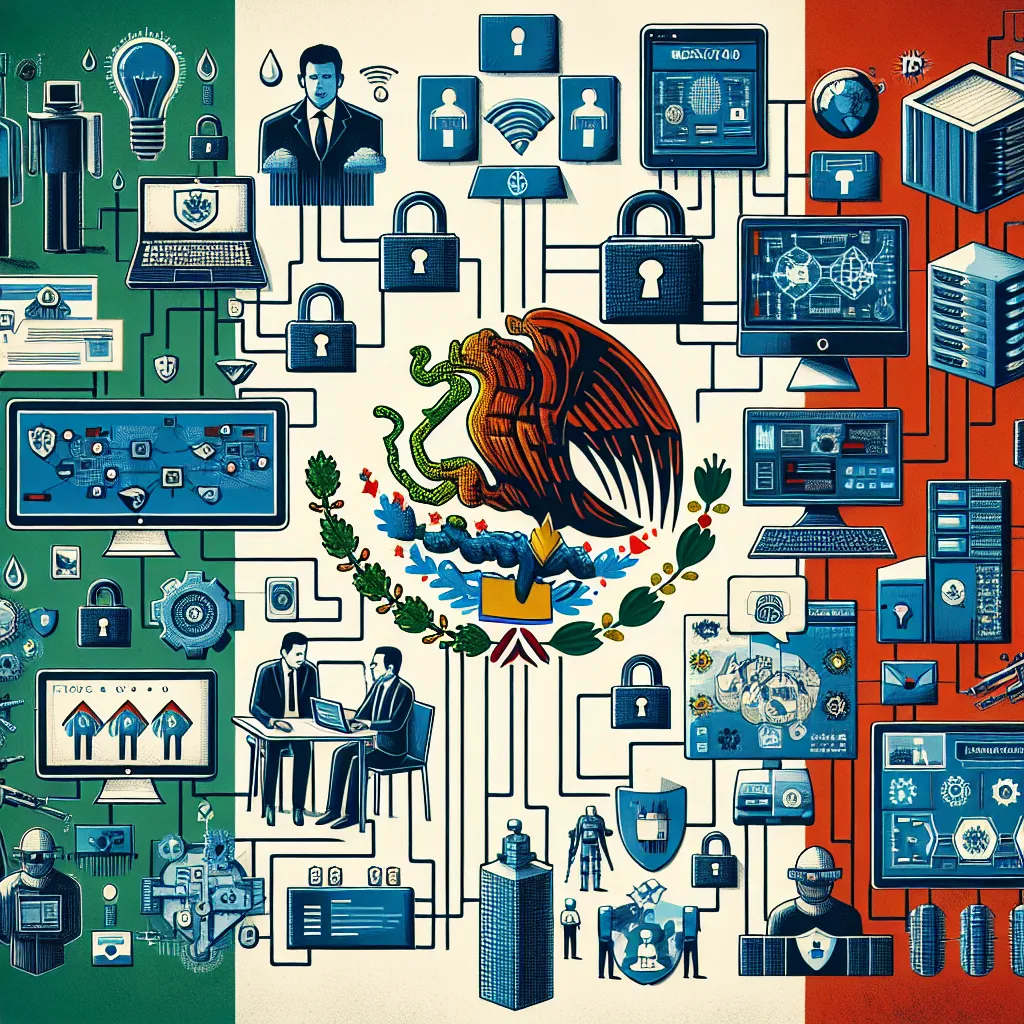Mexico’s Cybersecurity Strategy: Safeguarding the Digital Frontier
Mexico’s Cybersecurity Strategy: Safeguarding the Digital Frontier
Introduction
In today’s interconnected world, where digital technologies play a crucial role in all aspects of society, cybersecurity has become a top priority for nations worldwide. Mexico, being one of the largest economies in Latin America, is also acutely aware of the risks and challenges posed by cyber threats. To combat this growing menace, Mexico has developed a robust cybersecurity strategy that aims to protect its citizens, businesses, and critical infrastructure from cyber-attacks. This article will delve into Mexico’s cybersecurity landscape, the key elements of its strategy, and the efforts taken to ensure a safe and secure digital future.
Understanding the Cybersecurity Landscape in Mexico
Mexico, like many other countries, faces a wide range of cyber threats, including hacking, data breaches, ransomware attacks, and online fraud. These threats not only compromise the security and privacy of individuals but also pose significant risks to businesses and the country’s national security. According to recent reports, Mexico has witnessed a rise in cyber-attacks targeting its government institutions, financial sector, and energy industry. The growing reliance on digital platforms and increasing connectivity make it imperative for Mexico to bolster its cybersecurity defenses.
The Key Elements of Mexico’s Cybersecurity Strategy
Recognizing the need to protect its digital infrastructure and ensure the trust of its citizens, Mexico has formulated a comprehensive cybersecurity strategy with the following key elements:
1. Legislation and Regulatory Framework
Mexico has enacted several laws and regulations to address cybersecurity concerns effectively. The Federal Law on Protection of Personal Data Held by Private Parties and the Federal Telecommunications and Broadcasting Law provide a legal framework for data protection and privacy. Additionally, the National Cybersecurity Strategy, developed in 2014, serves as a guiding document for cybersecurity initiatives in the country.
2. Institutional Framework
Mexico has established key institutions responsible for overseeing and implementing cybersecurity measures. The National Cybersecurity and Incident Response Coordination Center (CERT-MX) serves as the central authority for coordinating cybersecurity efforts, responding to incidents, and providing guidance to various sectors. The National Cybersecurity Advisory Council (CNCS) advises the government on cybersecurity policies and strategies.
3. Public-Private Partnerships
Mexico recognizes the importance of collaboration between the public and private sectors in combating cyber threats. The government has actively engaged with industry stakeholders, including telecommunications companies, financial institutions, and cybersecurity firms, to develop joint initiatives and share threat intelligence. This collaboration enables swift response and effective mitigation of cyber incidents.
4. Capacity Building and Education
Enhancing cybersecurity capabilities and promoting awareness among individuals and organizations is a critical aspect of Mexico’s strategy. The government has invested in training programs, workshops, and awareness campaigns to educate citizens about cyber risks and best practices. Additionally, partnerships with educational institutions and international organizations facilitate the development of skilled cybersecurity professionals.
5. International Cooperation
Mexico actively participates in international forums and initiatives to tackle cyber threats collectively. It collaborates with organizations like the United Nations (UN), the Organization of American States (OAS), and the Inter-American Development Bank (IDB) to exchange best practices, share information, and strengthen global cybersecurity frameworks.
Efforts Taken to Ensure a Safe Digital Future
Under its cybersecurity strategy, Mexico has undertaken various initiatives to enhance its cyber defenses and protect its critical infrastructure. Some notable efforts include:
1. Cybersecurity Incident Response
CERT-MX plays a crucial role in responding to cybersecurity incidents promptly. It operates a 24/7 incident response center, which receives, analyzes, and mitigates cyber threats targeting Mexico’s networks and systems. CERT-MX also collaborates with international counterparts to address cross-border cyber incidents.
2. Cybersecurity Awareness Campaigns
Mexico regularly conducts awareness campaigns to educate individuals and organizations about cybersecurity best practices. These campaigns emphasize the importance of strong passwords, regular software updates, and caution while sharing sensitive information online.

3. Cybersecurity Certification Programs
The Mexican government has introduced cybersecurity certification programs to ensure the competence of professionals working in critical sectors. These programs validate the skills and knowledge of cybersecurity practitioners and promote a culture of cybersecurity across industries.
4. Cybersecurity Research and Development
Mexico encourages research and development in the field of cybersecurity to stay ahead of evolving threats. Academic institutions and research centers collaborate with industry partners to develop innovative cybersecurity solutions, conduct threat analysis, and share findings with relevant stakeholders.
5. Critical Infrastructure Protection
Mexico recognizes the significance of protecting its critical infrastructure, such as energy grids, transportation systems, and communication networks, from cyber threats. The government has implemented robust security measures, including regular audits, system monitoring, and incident response plans, to safeguard these vital assets.
Conclusion
Mexico’s cybersecurity strategy reflects its commitment to addressing the growing cyber threats faced by the nation. Through legislative measures, institutional frameworks, public-private partnerships, capacity building, and international cooperation, Mexico strives to create a secure digital environment for its citizens and businesses. By continually adapting and strengthening its cybersecurity defenses, Mexico aims to safeguard its critical infrastructure, protect sensitive data, and ensure the trust and confidence of its digital ecosystem. With a comprehensive strategy in place, Mexico is poised to navigate the challenges of the digital frontier and emerge as a global leader in cybersecurity.
